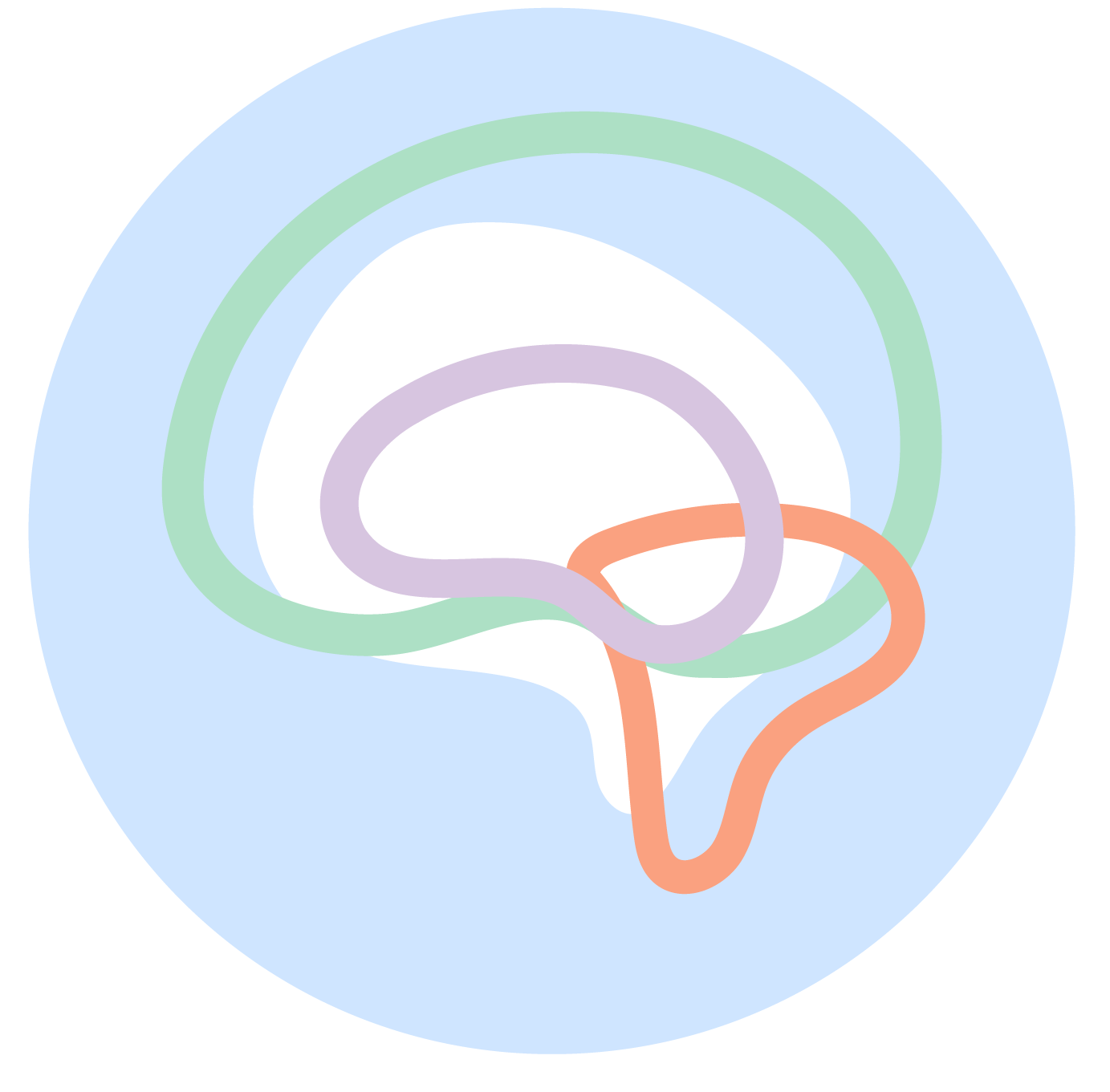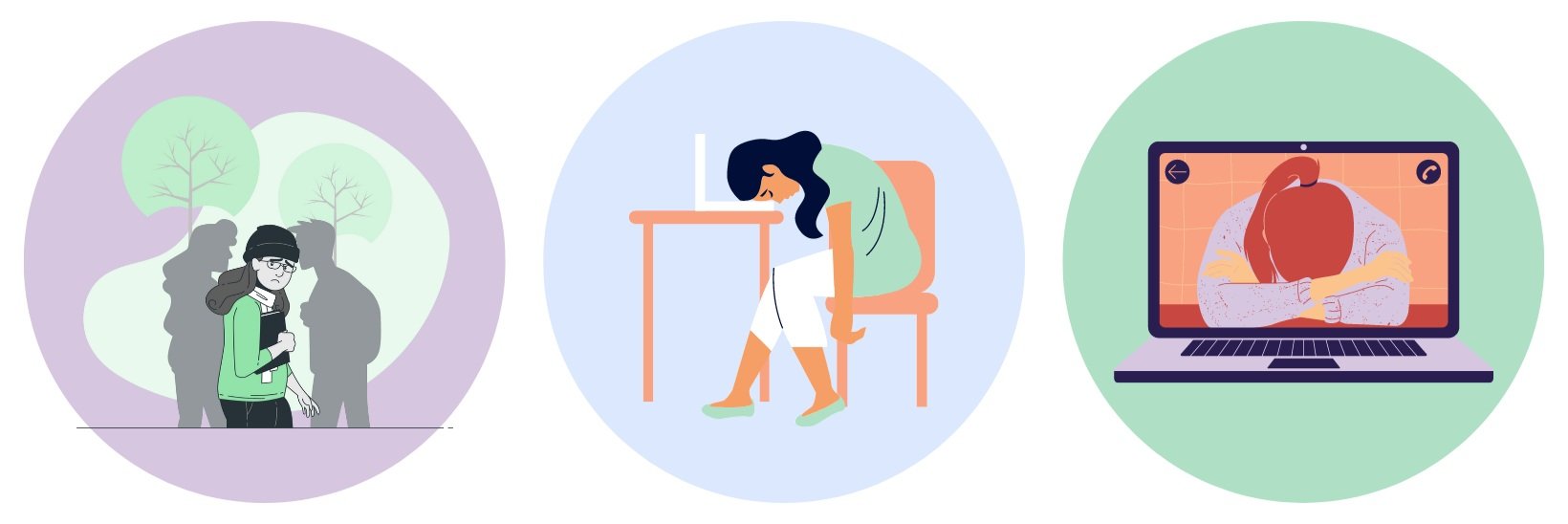The Impact of Social Media on Youth Mental Health
Within the last decade, social media has fundamentally changed the way people interact and communicate with each other. While social media has created several exciting opportunities in connecting people around the world, it is still a relatively new phenomenon that is being widely studied. In particular, many researchers are interested in how social media affects the mental health of adolescents. Here’s what we know so far:
Potential Risks
Social Comparison: Across different social media sites, teens are often engaging with a feed of posts that are carefully edited to portray others in a positive, often unrealistic light. As a result, many teens become caught up in negatively comparing their own appearances and accomplishments with what they see on social media. Moreover, studies found that frequent social comparisons in teens on social media increase their risk of disordered eating, experiencing depressive symptoms, and having a poor body image (Fardouly & Vartanian, 2016, Carter et al., 2016).
Loss of Sleep: Getting good sleep is crucial to adolescent mental health and development. In teenagers, sleep improves concentration and memory, and supports the immune system, cognitive and emotional development, and physiological growth. However, several studies have found adverse effects of social media on adolescent sleep. Researchers at the University of Glasgow found that young people have difficulty relaxing before bed after using social media, compromising the brain’s ability to fall asleep. Social media use has also been associated with shorter sleep duration, poor sleep quality, and daytime sleepiness (Robb, 2019).
Anxiety, Depression, and FOMO: Social media is typically associated with the fear of missing out (FOMO), a feeling of unease that others are having fun without you. FOMO has been linked to high levels of social media use and is associated with lower mood and life satisfaction (Centre for Mental Health). Social media compels users to constantly stay up-to-date on what their peers are doing, feeding their fear of missing out. Studies in the US have found that this perceived exclusion is associated with both depression and anxiety (Hunt et al., 2018, Elhai et. al, 2016).
Benefits
Social connection: Social media provides a digital environment for users to communicate with others and form social networks. Especially for certain groups of teens who may not have access to communities of peers they identify with, social media allows for additional opportunities to receive social support. For example, teens who identify as LGBTQ+ are more likely to identify online communities as important sources of emotional support (Nesi et al., 2019). Additionally, previous studies have shown that social media can actually improve mental health when used to enrich one’s sense of acceptance or belonging (Ybarra et al., 2014).
Identity exploration: Social media allows for identity exploration, expression, and collaboration with peers. Teens are given an outlet to express their creativity, and can even access information on social media that can help with identity development. They also are given a chance to practice self-presentation, a key part of identity development (Sebre & Miltuze, 2021). While many teens may get excessively concerned about how their appearance is perceived, studies have shown that social media sites are important in providing space for exploration and self-acceptance (McInroy and Craig, 2020).
Raise awareness, Join Worthwhile Causes: Although many teens are not able to vote yet, more and more teens have been turning to social media to educate themselves about various current events, vocalize their opinions, share petitions, and start fundraisers. From sharing safety tips for protesting at BLM marches to documenting instances of police brutality, teens are able to engage in activism and mobilize peers into taking action (Harris, 2021).
Tips for Healthier Social Media Use
While there are many benefits to using social media, there are also many harmful side effects on our mental health and wellbeing. There’s still a lot we don’t know about social media’s effect on our long-term psychological and physical health, but here are some ways we can practice healthy social media habits to improve our well-being.
Take Breaks: If you notice that social media makes you feel particularly anxious or sad, consider logging off for a few days. Whether this means turning off notifications or deleting the app, stepping away from social media allows you to reset and recharge your social battery, and reconnect with the world around you.
Unfollow and Mute: If upsetting posts show up on your feed (disrespectful, uncomfortable, FOMO, etc), use the unfollow, block, or mute button. Make your time on social media worthwhile by choosing to follow content that makes you happy.
Monitor your screen time: It can be helpful to learn how much time you’re spending on social media–but don’t obsess over tracking your screen time or make yourself feel guilty. By being aware of how much time you’re spending on social media, you can consider reprioritizing your time to spend more of your day doing what you find meaningful. Fun fact: a study from the Journal of Social and Clinical Psychology found that people who spend under 30 minutes per day on social media report happier emotions (Hunt et al., 2018) If you’re feeling a little too caught up in your social media, consider reducing your screen time!
Stay balanced: Social media is a great way to stay connected with friends and family around the world and to keep current with different communities. However, these digital interactions can’t substitute in-person interactions. Use social media as a tool to reach people who may be harder to contact in person, but also set aside a part of your day to spend quality time with family and friends outside of social media.
Avoid Social Media Before Bed: Getting a good night’s sleep is crucial to improving your mood and making you feel better throughout the day. However, internet use was found to be associated with getting less sleep (Garmy et al., 2012, Pea et al., 2012), sleeping and waking up later (Garmy et al., 2012, Shochat et al., 2010, Van den Bulck, 2004), taking more time to fall asleep (Shochat et al., 2010), and feeling sleepy throughout the day (Garmy et al., 2012, Van den Bulck, 2004). Adding to that, the blue light emitted from digital screens disrupts our circadian rhythm, making it harder to fall asleep. Try turning your phone off at least one hour before bedtime to let your mind relax.



